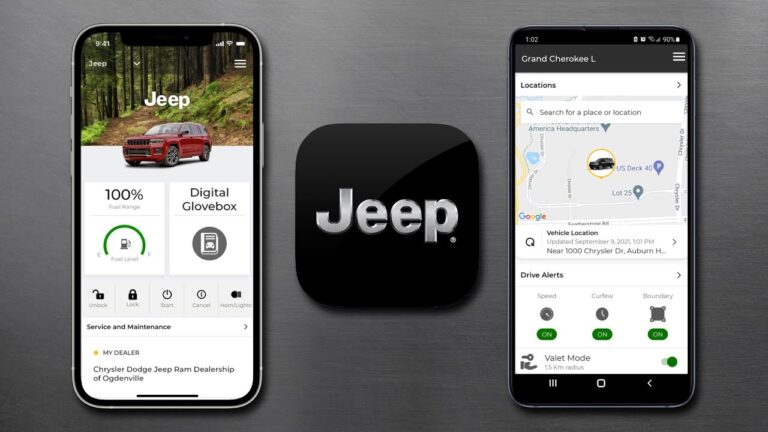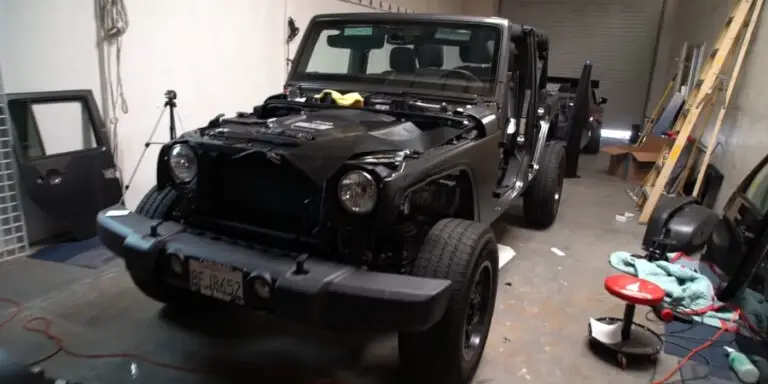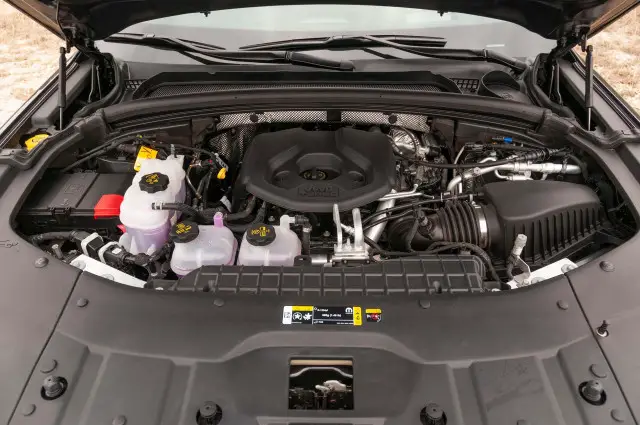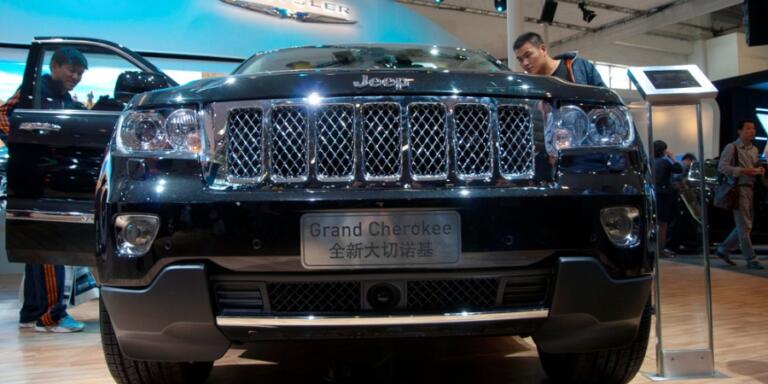Why Did Jeep 2.0 Turbo Discontinued
The Jeep 2.0 Turbo was discontinued due to safety concerns related to fuel leaks and faulty fuel lines. Over time, these issues became significant enough to warrant the discontinuation of this engine model.
Background Of Jeep 2.0 Turbo
The Jeep 2. 0 Turbo was discontinued due to safety concerns regarding fuel leaks and faulty fuel lines.
Additionally, supply chain shortages in the industry also played a role in the discontinuation of this engine.
The Jeep 2. 0 Turbo engine was a popular choice among Jeep enthusiasts, offering impressive power and performance.
However, despite its initial success, the engine has been discontinued. In this section, we will provide an overview of the Jeep 2.
0 Turbo engine, including its specifications and features.
Overview Of The Jeep 2.0 Turbo Engine:
- The Jeep 2.0 Turbo engine was a compact and efficient powertrain option for Jeep vehicles.
- It featured a turbocharged 2.0-liter inline-four engine, delivering a balance of power and fuel efficiency.
- This engine was capable of producing up to 270 horsepower and 295 lb-ft of torque, providing ample power for both on and off-road driving.
- It utilized direct fuel injection technology, optimizing fuel delivery and improving overall engine performance.
Engine specifications and features:
- Turbocharged performance: The turbocharged nature of the Jeep 2.0 Turbo engine allowed for quick acceleration and enhanced power delivery, making it an excellent choice for those seeking a thrilling driving experience.
- Advanced fuel efficiency: Despite its impressive performance capabilities, the Jeep 2.0 Turbo engine was also designed with fuel efficiency in mind. This combination of power and efficiency made it an attractive option for Jeep enthusiasts.
- Reduced emissions: The Jeep 2.0 Turbo engine incorporated advanced emission control systems, ensuring compliance with strict environmental regulations, and reducing its impact on the environment.
- Cutting-edge technology: The engine boasted advanced features such as an electronically controlled wastegate, which optimized boost control and overall engine performance.
- Reliable and durable: The Jeep 2.0 Turbo engine was engineered to be reliable and durable, designed to withstand the demands of off-road adventures and everyday driving.
The Jeep 2. 0 Turbo engine offered a powerful and efficient option for Jeep owners.
However, despite its initial popularity, the engine has been discontinued. In the upcoming sections, we will explore the reasons behind the discontinuation and discuss the factors that influenced this decision.
Stay tuned to learn more about why the Jeep 2. 0 Turbo engine was discontinued.
Safety Concerns And Issues
The Jeep 2. 0 Turbo was discontinued due to safety concerns related to fuel leaks and faulty fuel lines, which posed potential risks for drivers.
The decision to discontinue the engine was made to prioritize the safety of Jeep owners.
Fuel Leaks And Faulty Fuel Lines:
- Fuel leaks and faulty fuel lines have been a major safety concern for the Jeep 2.0 Turbo, leading to its discontinuation.
- The power unit of the Jeep 2.0 Turbo has experienced safety issues with fuel leaks and faulty fuel lines over time.
- Even after replacing the malfunctioning parts, the safety concerns related to fuel leaks and faulty fuel lines persisted.
- These safety concerns posed a potential risk for fire hazards and overall vehicle safety.
- The continuous occurrence of fuel leaks and faulty fuel lines compromised the reliability and trustworthiness of the Jeep 2.0 Turbo.
Overall, the issues of fuel leaks and faulty fuel lines contributed significantly to the discontinuation of the Jeep 2. 0 Turbo.
These safety concerns were detrimental to the vehicle’s reliability and safety standards, emphasizing the need for action to mitigate potential risks.
Supply Chain Shortages And Production Challenges
The discontinuation of the Jeep 2. 0 Turbo can be attributed to supply chain shortages and production challenges, which have affected various industries.
These challenges have led to issues such as fuel leaks and faulty fuel lines in the power unit, prompting the decision to discontinue the engine.
The Jeep 2. 0 Turbo has faced challenges due to supply chain shortages and production issues. Here are the key points to consider:
- Impact of supply chain shortages on the automotive industry:
- The automotive industry heavily relies on a complex supply chain to manufacture vehicles and parts.
- Global events such as the COVID-19 pandemic and natural disasters have disrupted supply chains, leading to shortages of essential components.
- Supply chain disruptions result in production delays, affecting the availability of vehicles in the market.
- Shortages also drive up costs, as manufacturers may need to source components from different suppliers at higher prices.
- How supply chain shortages affected the production of the Jeep 2.0 Turbo:
- The Jeep 2.0 Turbo relies on various parts and components from different suppliers to maintain its performance and features.
- Disruptions in the supply chain caused delays in acquiring these components, impacting the production process.
- As a result, production volumes of the Jeep 2.0 Turbo declined, leading to limited availability in dealerships.
- Manufacturing challenges also forced the company to prioritize certain vehicles or models, affecting the production schedule of the Jeep 2.0 Turbo.
Supply chain shortages and production challenges have significantly impacted the availability and production volumes of the Jeep 2. 0 Turbo.
These issues highlight the importance of a resilient and efficient supply chain in the automotive industry.
Customer Feedback And Complaints
The Jeep 2. 0 Turbo has been discontinued due to safety concerns related to fuel leaks and faulty fuel lines.
This decision was made to prioritize customer safety and address the issues with the power unit.
The Jeep 2. 0 Turbo has received mixed feedback from customers, with several common complaints and issues related to battery pack leaks and coolant problems.
Here are some of the most frequent complaints:
- Battery Pack Leaks: Many Jeep 2.0 Turbo owners have reported issues with battery pack leaks. This can lead to electrical malfunctions and potential safety hazards. The leaks can cause damage to other components as well, resulting in costly repairs.
- Coolant Problems: Another common complaint is related to coolant problems. Some owners have experienced coolant leaks or overheating issues, which can lead to engine damage and even engine failure if not addressed promptly.
- Reduced Power and Performance: Some customers have noted a decrease in power and performance compared to what they expected from a turbocharged engine. This can be frustrating, especially for those who have purchased the vehicle specifically for its turbo capabilities.
- Reliability Concerns: A number of Jeep 2.0 Turbo owners have expressed concerns about the overall reliability of the engine. This includes issues such as frequent breakdowns, unexpected repairs, and difficulty finding reliable mechanics familiar with the engine’s specific needs.
- Lack of Fuel Efficiency: Several customers have mentioned disappointment with the fuel efficiency of the Jeep 2.0 Turbo. Despite being a smaller displacement engine, it has not delivered the expected fuel savings compared to larger engines in the same vehicle line-up.
While not every owner has experienced these issues, the recurring complaints have led to a significant number of dissatisfied customers and ultimately contributed to the discontinuation of the Jeep 2. 0 Turbo.
It’s important to note that Jeep has acknowledged and addressed some of these concerns with updates and improvements in later models.
However, it’s always recommended to thoroughly research and consider customer feedback before purchasing a vehicle.
Performance And Reliability
The discontinuation of the Jeep 2. 0 Turbo is mainly attributed to safety concerns related to fuel leaks and faulty fuel lines, as well as supply chain shortages affecting the industry.
Many Jeep owners have also reported issues with leaking coolant in the battery packs, leading to overheating and damage.
As a result, the turbocharged-and-hybridized four-cylinder engine has been discontinued.
Driving Impressions And Experiences With The Jeep 2.0 Turbo:
- The Jeep 2.0 Turbo offers impressive acceleration and power, making it a thrilling option for those seeking a sportier driving experience.
- With its turbocharged engine, the Jeep 2.0 Turbo delivers excellent torque, allowing for quick and effortless overtaking on the highway.
- The engine provides smooth and responsive acceleration, making it easy to merge into traffic with confidence.
- Off-road enthusiasts will appreciate the low-end torque of the Jeep 2.0 Turbo, which enables it to tackle steep inclines and challenging terrain with ease.
- Drivers report that the Jeep 2.0 Turbo offers a refined driving experience, with minimal noise and vibration in the cabin.
Reliability Of The Engine In Different Conditions:
- The Jeep 2.0 Turbo engine has proven to be reliable in various conditions, including extreme cold and hot temperatures.
- Owners have reported that the engine starts without hesitation even in freezing temperatures, ensuring peace of mind during winter months.
- The Jeep 2.0 Turbo has demonstrated durability and resilience on long road trips, with no significant issues reported during extended drives.
- The engine has been praised for its ability to perform consistently in both city and highway driving, displaying reliability in diverse traffic conditions.
- Jeep owners who frequently take their vehicles off-road have found the engine to withstand rough terrains and demanding off-road adventures without compromising performance.
By offering impressive driving performance and displaying remarkable reliability in various conditions, the Jeep 2. 0 Turbo engine has established itself as a formidable choice among SUV enthusiasts.
Whether for daily commuting or off-road adventures, this turbocharged engine delivers a powerful and enjoyable driving experience while maintaining its dependability.
Comparison With Other Jeep Engines
The discontinuation of the Jeep 2. 0 Turbo engine can be attributed to concerns over safety issues such as fuel leaks and faulty fuel lines.
Additionally, supply chain shortages in the industry have also played a role in the discontinuation of this engine option.
Pros And Cons Of The Jeep 2.0 Turbo Compared To Other Engine Options:
The decision to discontinue the Jeep 2. 0 Turbo engine has left many Jeep enthusiasts wondering about its advantages and disadvantages when compared to other engine options.
Let’s take a closer look at the pros and cons of this turbocharged engine:
Pros
- Power and performance: The Jeep 2.0 Turbo offered impressive power and performance, delivering 270 horsepower and 295 lb-ft of torque. It provided a thrilling driving experience, especially off-road.
- Fuel efficiency: With its smaller displacement and turbocharging technology, the 2.0 Turbo engine offered better fuel efficiency compared to larger engines. This meant fewer trips to the gas station and more time on the road.
- Lightweight design: The 2.0 Turbo engine was compact and lightweight, contributing to improved handling and maneuverability. This made it ideal for tackling challenging terrains and tight corners.
Cons
- Power loss at high altitudes: One drawback of the 2.0 Turbo engine was its power loss at high altitudes. Due to its small size, the engine struggled to maintain its performance in thinner air, resulting in reduced power and acceleration.
- Limited towing capacity: While the 2.0 Turbo engine offered decent power, its towing capacity was not as impressive compared to larger engines. If you frequently tow heavy loads or trailers, you might find the engine lacking in this aspect.
- Reliability concerns: Some owners reported reliability issues with the 2.0 Turbo engine, including fuel leaks and faulty fuel lines. These safety concerns ultimately led to the discontinuation of the engine.
Considering these pros and cons, the Jeep 2. 0 Turbo engine had its strengths, particularly in terms of power, fuel efficiency, and lightweight design.
However, it also had its limitations, such as power loss at high altitudes and reliability concerns.
Jeep enthusiasts will now have to explore other available engine options to find the perfect match for their driving needs.
Discontinuation And Future Developments
The discontinuation of the Jeep 2. 0 Turbo engine is due to safety concerns regarding fuel leaks and faulty fuel lines.
As a result, the engine has been replaced in order to ensure the safety of the vehicle and its passengers, with future developments focusing on improved reliability and performance.
The discontinuation of the Jeep 2. 0 Turbo engine was driven by several reasons. Here are the main factors that led to its discontinuation:
- Fuel consumption concerns: The Jeep 2.0 Turbo engine had a reputation for consuming more fuel than expected, which was not ideal for drivers looking for a more fuel-efficient vehicle.
- Reliability issues: Some owners reported experiencing reliability issues with the engine, including fuel leaks and faulty fuel lines. This raised safety concerns and led to a loss of confidence in the engine’s reliability.
- Performance limitations: The Jeep 2.0 Turbo engine, while offering decent power, had its limitations when it came to delivering the desired performance. Some drivers felt that it didn’t provide the level of power and acceleration they expected from a turbocharged engine.
Despite the discontinuation of the Jeep 2. 0 Turbo, there are potential future developments in Jeep engine offerings.
Here are some possibilities for future engine models:
- Improved fuel efficiency: Jeep may introduce new engines or updates to existing engines that prioritize fuel efficiency without compromising performance. This would meet the growing demand for more eco-friendly vehicles.
- Enhanced reliability: Future engine models may address the reliability issues seen in the Jeep 2.0 Turbo. Jeep will likely focus on improving the overall quality of their engines to deliver a more reliable and worry-free driving experience.
- Increased performance options: Jeep may develop engines with more power options to cater to a wider range of driver preferences. This could include higher-performance variants for off-road enthusiasts or those seeking more horsepower for on-road performance.
Jeep is constantly working to improve and innovate, so it’s likely that we’ll see exciting developments in their engine offerings in the future.
Stay tuned for updates on what Jeep has in store for its engines.
Remember, customer feedback and market demand play a significant role in driving future developments, so Jeep will take these factors into account when designing new engines.

Credit: offroadlounge.com
FAQs For Why Did Jeep 2.0 Turbo Discontinued
What Is The Jeep 2.0 Engine Failure?
The Jeep 2. 0 engine has been known to experience failures such as fuel leaks and faulty fuel lines. These issues have led to safety concerns and the discontinuation of the engine.
Does The Jeep Wrangler 2.0 Turbo Require Premium Gas?
Yes, the Jeep Wrangler 2. 0 Turbo does require premium gas.
Who Makes The Jeep 2.0 L Turbo?
The Jeep 2. 0 L turbo is made by FCA Global Medium Engine, but it is now discontinued.
When Did Jeep 2.0 Turbo Come Out?
The Jeep 2. 0 Turbo came out in (insert year).
Conclusion
The discontinuation of the Jeep 2. 0 Turbo engine can be attributed to various factors. One of the main reasons is the safety concerns related to fuel leaks and faulty fuel lines.
Additionally, there have been complaints from Jeep owners about battery packs leaking coolant, causing overheating and damage.
Another contributing factor is the current industry-wide supply chain shortages.
Furthermore, the loss of the turbocharged-and-hybridized four-cylinder engine has led to its discontinuation.
While the Jeep 2. 0 Turbo engine had its advantages, such as improved fuel efficiency and power, the safety and reliability issues have ultimately led to its discontinuation.
Jeep enthusiasts and potential buyers may need to explore other engine options available in the market.
As the automotive industry continues to evolve, it is important for manufacturers to prioritize safety and address any concerns promptly.





